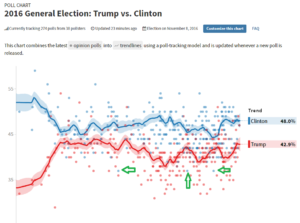I write a lot, albeit intermittently, about architecture and related topics like urban planning and the built environment in general. And it is endlessly fascinating how so many Americans can create for themselves ghastly, fundamentally unlovable living spaces and then wonder why nobody – themselves included – loves them.
Try to love a McMansion, or even a smaller-scale new construction suburban Box o' Siding house. Try to love a subdivision. Try to love a strip mall, especially one surrounded by fifteen more. Try to love a six-lane divided street with no sidewalks and Fall of Saigon traffic.
buy grifulvin online redemperorcbd.com/wp-content/languages/new/prescription/grifulvin.html no prescription
You won't. You won't because you can't. Tens of millions of Americans have moved to the suburbs since the end of the Second World War, and the design of new suburbs and the living spaces that fill them are not only a symptom of the malaise of "What's wrong with this country?
buy xenical online redemperorcbd.com/wp-content/languages/new/prescription/xenical.html no prescription
" but also a cause of it. A Boomer who grew up in the 1950s in a 900 square foot brick home eight feet away from a similar home on either side and in 2016 lives in a 2500 square foot empty beige pastiche of gaudy anti-architecture on a big lot can ask without the slightest hint of self awareness or irony, "I wish things were more like they were in the good ol' days."
We complain that people don't know their neighbors anymore, which is a choice. When people move to the suburbs, the physical manifestation of the psychological impulse to withdraw and escape, it makes perfect sense that they don't know their neighbors. Their neighbors are probably just like them – misanthropes who want nothing more than to hole up in four cheaply built walls and shut out the scary world without. Add in an acre or two of lawn and a tall "privacy" fence and what do you expect? Of course you don't know your neighbors. That's the whole point of the lifestyle you chose for yourself.
I hear people make this complaint often and I never pass the opportunity to point out that I know my neighbors, which is pretty amazing considering 1) I have bad social skills, 2) They speak about 10 words of English and I speak about 10 of Polish, and 3) I'm kind of an asshole. But I know them because we live in the same building and arm's length from another building. We know each other because we have not chosen to live in an environment constructed to prevent us from having to know each other.
To live in the Midwest or New England is to be close at all times to urban decay and the depressing skeletons of places that obviously used to be very nice places; places people older than me are remembering fondly (and not without reason) when they pine for the way things used to be. The new, sterile, antisocial spaces they've built for themselves pale in comparison. They are by design shoddy replicas of a real urban setting, an authentic small town, or something resembling a community in which people interact with one another. But the places they once loved and are now depressing relics didn't get that way by accident. They fell apart because the people who now bemoan their loss chose to ran away rather than live near immigrants or black people. Maybe this is why they're so angry. What's the line? "That's what really hurts: you did it to yourself"?
There's a reason people under 40 want to live in urban areas and even those who can afford suburban living rarely choose it. We believe our parents when they say that life doesn't feel like it used to in this country, that something feels wrong, that something undefinable is missing. Unlike them, however, we haven't watched the Local News at Nine and Fox News to the point that we're terrified at the very thought of living in something other than self-imposed isolation, segregated from Scary Non-White People and without the lawns and parking lots and cathedral ceilings that they insist are going to make them happy someday.
It isn't rocket science. Create for yourself a home, a neighborhood, a town, a state, a country that is ugly, impersonal, cynical, and unlovable and you will not love it.
To hear people who want to Make America Great Again bemoan everything wrong with the country as they experience it is to watch someone who has locked themselves in a closet for three decades complain that they're bored and lonely. When you construct a life for yourself behind a panoply of physical and psychological barriers it shouldn't come as a surprise that people seem different than they used to back when you had to talk to and interact with them.
